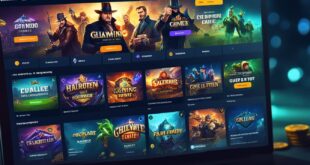The landscape of the gambling industry is remarkably diverse, offering enthusiasts a multitude of ways to engage with betting platforms. Notably, the rise of social gambling online has introduced a fresh dynamic into the realm of wagering. Distinct from traditional real money betting, social gambling permits players to immerse themselves in the excitement of the game without the pressure of staking actual currency. These betting platforms have crafted a niche that thrives on the social aspect and competitive spirit inherent in humankind.
Meanwhile, real money betting continues to command its corner of the online betting scene, eliciting the thrill of potentially lucrative outcomes for players who venture to stake real-world cash. As we delve deeper into these two facets of modern gambling, we find that the demarcation isn’t merely about the money; it’s also about the varied legalities and cultural perceptions that influence the accessibility of these activities across states and regions.
The contrast between social gambling and real money betting encapsulates more than gameplay; it underscores the evolution of the gambling industry and its adaptive response to shifting legal landscapes and player preferences. Whether for fun or profit, players around the globe are engaging with these platforms, crafting their narratives within the sparkling confines of the online betting world.
Understanding the Basics of Social Gambling Online
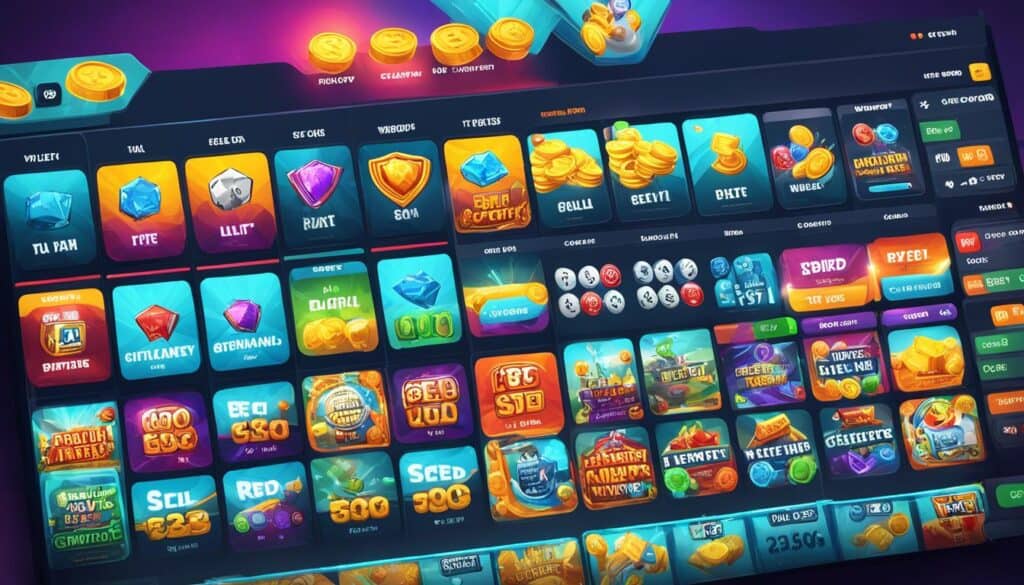
As digital interactions continue to shape our leisure activities, social gambling emerges as a prominent trend in the realm of casual gaming. Striking a balance between traditional casino elements and the accessibility offered by modern technology, social betting platforms are captivating audiences across the nation. Here, we delve into what social gambling entails, its widespread appeal, and the legal nuances that govern its existence.
What is Social Gambling?
Social gambling is an innovative form of gaming that allows individuals to engage in casino-style games within a social network environment. These platforms prioritize fun and interaction over financial risk, as players wager virtual coins without the exchange of real money. This distinction not only defines what is social gambling but also contributes to its far-reaching legality and broad acceptance online.
The Appeal of Social Casino Games
The allure of social casino games is undeniable. They offer the excitement of slots, poker, and other classic casino games, coupled with social elements that allow players to compete with friends and share achievements. The benefits of social gambling online are evident in the way these games foster a sense of community and provide entertainment without financial stakes, allowing a risk-free passtime that echoes the thrilling ambiance of Las Vegas.
Legal Status and Accessibility Across States
Compared to the complexities surrounding the legality of real money betting, the legal status of social gambling online is less stringent. Across the majority of the United States, social casinos flourish under legal conditions that classify these activities as lawful entertainment. Players from different jurisdictions can indulge freely in these platforms, with notable exceptions due to specific state regulations. Consequently, the social casinos’ legal status invites a broad demography of players to enjoy a diverse array of gaming experiences on devices all over the country.
- Nevada, Washington, and Idaho are among the few states that navigate unique restrictions regarding social betting platforms.
- The legality of social gambling online hinges on the use of in-game currencies, bolstering its permissibility as a mainstream form of digital amusement.
The Rise of Real Money Online Betting

The landscape of gambling is witnessing an unprecedented surge in the realm of real money online betting—a domain where thrill-seekers and fortune hunters converge to stake tangible currency for potential monetary gains. Engaging in this form of betting not only entails a grasp of the involved risk but also an understanding of the complex regulatory environment that governs it.
Real Money Betting: Definition and Dynamics
Real money gambling stands as a cornerstone of the betting industry, where participants gamble with actual currency in hopes of achieving financial rewards. Unlike its virtual counterpart, the stakes in real money gambling carry true economic value, making the dynamics of play notably different. With every wager, players experience the gravitas of a potential financial outcome, inducing a level of excitement and engagement that virtual betting struggles to match.
Growth of Real Money Online Gambling Markets
The trajectory of real money online gambling markets is on an upward stride, challenging social gaming platforms in terms of revenue and market share. This growth is attributed to players’ desire for real outcomes and the inherent nature of financial betting that encourages higher monetary commitments. As the gap between virtual and real stakes lessens, more players transition from social gaming to the realm of real money gambling—catalyzing further expansion of this lucrative market.
Legal Money Betting: Regulatory and Legal Framework
An intricate web of Real money gambling regulations and legal money betting frameworks safeguard the integrity of real money online gambling. With stringent measures that govern every transaction, these guidelines serve as the backbone of consumer protection and fair play. The legality of online real money betting varies by jurisdiction, crafting diverse gambling landscapes that players and providers must navigate with meticulous care. As a consequence, the legal framework becomes a pivotal factor in the accessibility and operation of gambling platforms across the globe.
Exploring the Differences Between Social and Real Money Gambling

The landscape of contemporary gambling is diverse, hosting both traditional gambling enthusiasts and those who prefer the new wave of social gambling platforms. Understanding the key differences between social and real money gambling lies at the heart of recognizing the dynamics within the gambling industry.
Social gambling vs traditional gambling revolves around the concept of stakes. Social gambling is vested in the idea of purely entertainment value and connection with other players, utilizing virtual currencies. This form of gambling is often fueled by a vibrant social scene and a competitive spirit that doesn’t hinge on monetary loss or gain. Conversely, traditional gambling – often coined as real money gambling – carries the weight of actual financial stakes, where gains and losses can have tangible impacts on the player’s fiscal status.
Key features that characterize social gambling include:
- Use of virtual currencies that hold no real-world value
- Free access with in-app purchases available for advancement or enhancement
- Focus on the social element, where players interact and compete with friends or online communities
- Games designed to be engaging and entertaining without the risk of financial loss
In contrast, real money gambling typically encompasses:
- Wagering of actual currency with the potential for monetary gain
- Regulated environments with varying levels of accessibility based on jurisdiction
- A more individualistic approach to playing for financial outcomes
- The potential for financial loss, thereby carrying higher risk
Additionally, demographic trends have shown that preferences can diverge according to gender, with different forms of gambling attracting distinct audiences. Besides gender, there are evident splits in the differences between social and real money gambling from the perspective of game choice, with a noticeable variance in the attractiveness of game types based on the thrill associated with winning or the pleasure of gameplay and social engagement.
An unmissable component of today’s digital gambling narrative is the presence of social gambling games on platforms such as Facebook, which bring a seamless integration between social networking and gaming entertainment. It’s essential to grasp these nuances to fully appreciate the evolving dimensions of the gambling industry, as well as the motivations of players within each domain.
While traditionally these two spheres have operated independently, the burgeoning digital age brings them into greater proximity. Hence, mapping out the distinctions is not only significant for consumers but also for creators, regulators, and marketers within the ambit of the gambling ecosystem. By acknowledging these sectors’ unique attributes and market appeals, a comprehensive understanding of the gambling landscape can be achieved.
Key Players in the Social Gambling Scene

In the dynamic world of online entertainment, social betting platforms are carving a niche with their unique blend of gaming excitement and communal interaction. These platforms leverage the latest technology to create immersive environments where players can enjoy the thrill of the game without financial risk. At the forefront of this industry are popular social casinos that have become household names, consistently drawing in vast numbers of virtual gamers.
Popular Social Betting Platforms
Among the many social casino sites, a few have become especially well-known for their engaging content and innovative features. These platforms offer a rich variety of games, from classic slots to competitive poker, catering to different tastes and preferences, making them popular choices for gamers seeking the social aspects of casino gaming combined with risk-free play.
High 5 Casino: A Case Study
High 5 Casino stands as a prime social casino case study, demonstrating the successful integration of in-house game development with user engagement strategies. Its portfolio includes a slew of original slot titles, and its reputation for robust RTPs, especially in video poker, underscores its commitment to creating a player-focused experience. The platform’s mobile compatibility and signup bonuses are strategically designed to captivate a growing audience of social casino enthusiasts.
Analysis of Top Social Gambling Sites for 2024
- Game Variety – A comparison of the extensive game libraries that top social casino sites shall offer, with an emphasis on how these vary to appeal to the broad spectrum of player preferences.
- Reward Systems – An examination of the reward and bonus structures, analyzing how they contribute to the ongoing success and growth of these platforms.
- Market Positioning – Insight into how continued innovation and market strategies can keep these social betting platforms at the pinnacle of the industry.
The social gambling market analysis indicates that the blend of high-quality game offerings, user-friendly interfaces, and community-centric features form the cornerstone of the most successful social casino sites. As we look to the future, the social gambling scene continues to evolve, spurred on by the creative forces behind these leading platforms.
Major Real Money Online Betting Platforms
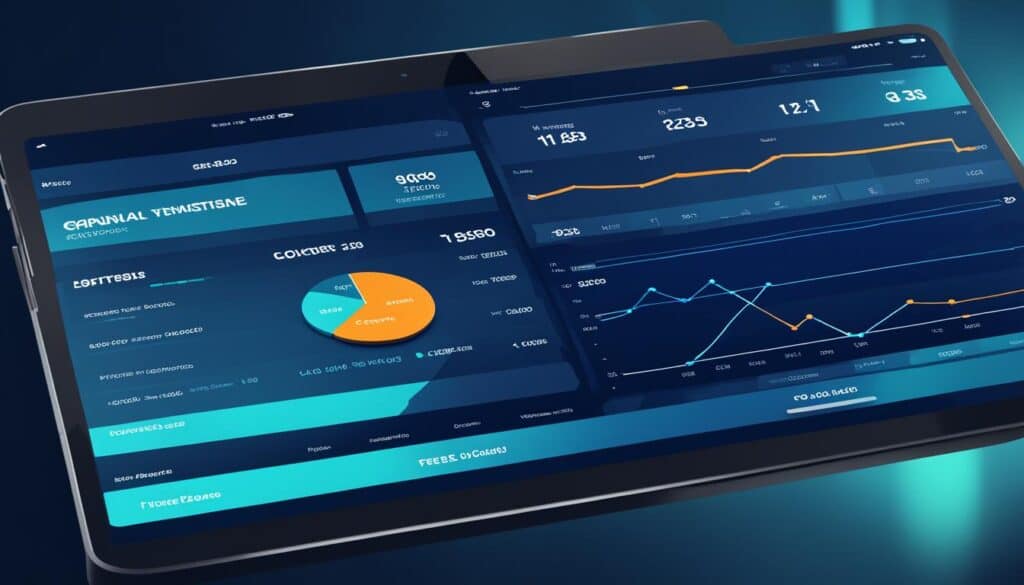
As the real money gambling landscape continuously evolves, the development of real money gambling (RMG) casinos stands as a testament to innovative market trends. These platforms not only enrich the gaming ecosystem but also chart a course for future advancements. Influential brands like Chumba Casino and Stake.us Casino distinguish themselves by ingeniously blending the thrill of financial stakes with the communal charisma of social gaming interfaces.
Surge in RMG Casino Development
The surge in real money gambling development stems from a steadfast commitment to enhancing the player experience. By aligning casino environments with cutting-edge technology, RMG casinos endeavor to captivate a demographic seeking vivid entertainment infused with real stakes.
- Integration of reward systems akin to social gaming platforms, encouraging user engagement and retention.
- Advent of innovative betting formats that cater to preferences for skill-based challenges and games of chance.
- Collaborations with established gaming software developers to broaden game libraries and offer exclusive content.
Profile of Real Money Online Gamblers
Focused analyses reveal a compelling profile of real money gamblers, shaping the marketing strategies of industry stakeholders. These players typically hail from younger demographics, tending towards affluence and a higher level of education.
- The profile skews male for skill-based betting platforms, with a measured preference for strategic gameplay.
- Females demonstrate inclinations towards chance-based games, suggesting a nuanced approach to real money betting demographics.
- An overarching pursuit for gaming platforms is to tap into insights provided by player behavior to optimize their offerings.
Demographics: Who Prefers Social Betting Over Real Money Wagering?

Exploring the demographics of online gambling reveals distinct preferences and tendencies based on various social and economic factors. Understanding the profile of players who choose social betting platforms in contrast to those opting for real money wagering sheds light on the underlying motivations and behaviors within the gambling audience.
Gender and Age Distribution Among Players
Gender and age play a significant role in determining the type of gambling platforms that players favor. Studies have found that women, particularly in the age group of 35 to 65 years, are more inclined towards social gambling, especially when it comes to slot games. This preference mirrors the demographic trends observed in the real money sector, suggesting a universal appeal of certain games among female players.
Income and Education Levels of Gaming Audiences
When delving into the socioeconomic aspects, player income levels and education emerge as influential factors. Those who participate in social gambling often do so for the thrill and social engagement these platforms provide. On the other side of the spectrum, real money gambling appeals to individuals seeking the exhilaration associated with the potential financial gains. This disparity reflects a division in player purpose and aspiration, ranging from casual entertainment to serious monetary pursuits.
How Social Gambling Works: The Mechanics Behind the Fun
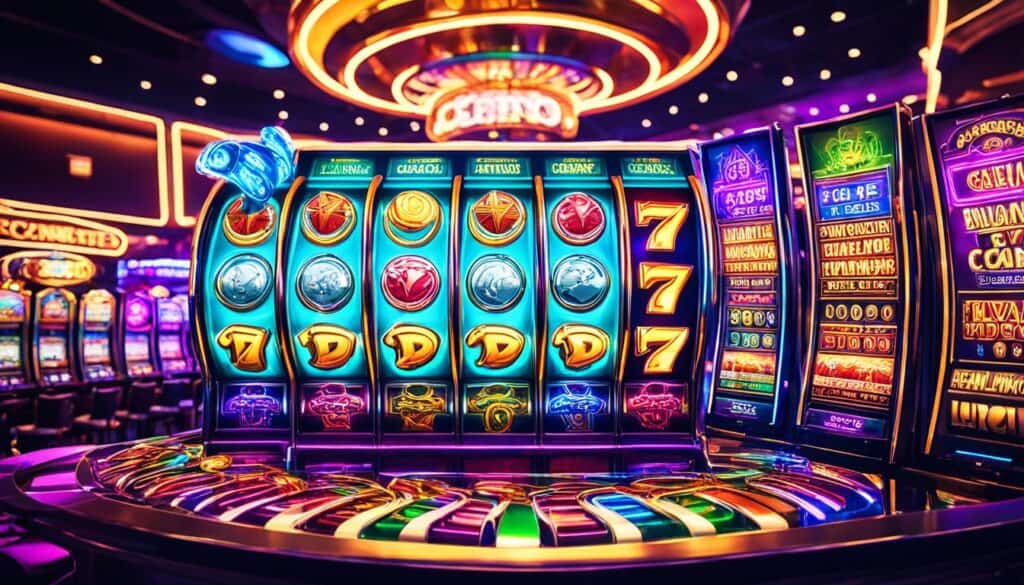
The fascinating world of social gambling relies on a collection of intricate elements that together create an enjoyable and interactive environment for players far and wide. Central to its appeal is the use of virtual currencies and tailor-made gaming algorithms that enhance player engagement, coupled with an emphasis on the social aspects of gaming.
The Role of Virtual Currencies and Microtransactions
Virtual currencies sit at the heart of social gambling, enabling players to immerse themselves in an environment where traditional monetary risk is off the table. These digital coins facilitate microtransactions in social gambling, offering gamers the thrill of ‘betting’ without the financial repercussions — a cornerstone feature that fosters a vast and inclusive gaming community.
- Acquiring in-game power-ups or exclusive features.
- Facilitating continuous play through coin refills.
- Unlocking additional content for enriched gameplay.
Gaming Algorithms Designed for Engagement
Gaming algorithms in social casinos are expertly crafted to maximize fun and player satisfaction. Unlike real-money counterparts, these algorithms promote a sense of achievement and progression, essential in driving social casino engagement and building a loyal user base.
- Implementation of leveling systems that reward consistent play.
- Allocation of virtual trophies that signify player milestones.
- Regular introduction of new challenges to maintain interest and excitement.
Integrating Social Interactions in Gameplay
In the realm of social casinos, fostering connections goes beyond the games themselves. Social interactions in gaming are heavily prioritized, encouraging players to engage with one another, share their victories, and even collaborate. It’s this blend of entertainment and community that truly defines the social casino engagement experience.
- Features that enable friends to play and compete together.
- Options for gifting in-game currency to fellow players.
- Communities centered around shared gaming successes and strategies.
Comparing the Benefits of Social Gambling Online to Real Money Betting

The arena of digital gaming has seen a significant split with the emergence of two distinct platforms: social gambling online and real money betting. Each offers a unique set of experiences, shaped by their distinct advantages and disadvantages, which cater to different player profiles and expectations. Understanding the social vs real money gambling pros and cons is essential for players navigating this virtual landscape.
Social gambling has carved a niche for itself by promoting an environment that is accessible and largely legal across many jurisdictions, with its defining characteristic being the absence of real-world monetary risks. Conversely, real money betting platforms cater to those seeking the thrill of a potential monetary reward, but not without the accompanying financial risks and legal considerations. Here, we compare the intrinsic benefits each model offers:
- Legal and Safety Considerations: Social gambling is widely accessible and generally legal due to the use of virtual currencies, offering a risk-free environment conducive to social interaction and entertainment.
- Accessibility and Sociability: With low entry barriers, anyone with internet access can join social gambling platforms, fostering a community atmosphere and inclusive participation.
- Financial Reward: The prospect of winning actual money is exclusive to real money betting, providing an undeniable draw for participants willing to take on the associated risks.
- Regulatory Compliance: Real money gambling sites are subject to strict regulations, ensuring player protection and fostering trust through rigorous licensing requirements.
As we dissect the pros and cons of each form of gambling, it is clear that the choice between social and real money gaming hinges on individual preferences for risk, potential reward, and the value placed on the social aspect of gaming. While the adrenaline of wagering real currency can be enticing, the assurance of a legally compliant and financially safe gaming option makes social gambling an attractive alternative for those seeking pure entertainment without the fiscal jeopardy.
Evaluating the Risks of Real Money Gambling vs. Social Gaming

As we delve into the world of online gaming, it becomes crucial to understand the intrinsic risks and rewards associated with different betting behaviors. Real money gambling and social gaming cater to distinct audiences seeking different experiences; however, understanding the contrasts between the two can guide players in making informed choices. These forms of gaming come with their own set of financial implications, addiction risks, and regulatory landscapes, shaping the overall gamble experience for enthusiasists.
Financial Implications and Addiction Risks
Real money gambling is synonymous with the potential for significant financial outcomes—both positive and negative. With real stakes at play, participants can find themselves navigating through waves of financial gain and loss, which can have far-reaching consequences on personal finances. The thrill of winning money is a powerful motivator, yet the risks of encountering substantial monetary losses cannot be overstated—often underpinned by the looming possibility of developing a gambling addiction.
On the other side of the spectrum, social gaming’s financial risks are inherently lower due to the absence of real money bets. Nevertheless, the engagement with these platforms is not without its pitfalls. Excessive time investment and compulsive gaming behaviors are concerns that mirror those in real money gambling, suggesting that risk elements can transcend the nature of the game’s currency.
Pros and Cons of Real Money Gambling
- Pros:
- Excitement of potentially winning real funds that can translate into tangible rewards.
- The challenge and adrenaline rush associated with risk-taking and strategizing.
- A range of games offering a variety of betting options and experiences.
- Cons:
- Potential for substantial financial loss, possibly leading to debt and economic hardship.
- Regulatory restrictions that vary by region, potentially constraining accessibility.
- Risk of developing gambling addiction, with psychological and social consequences.
When considering whether to engage in real money gambling or social gaming, players have to weigh the excitement and possibility of financial reward against the severity and reality of the associated risks. It is a balance that must be carefully considered, prioritizing not only the potential for financial gratification but also one’s well-being and financial stability.
Can Social Gambling Lead to Real Money Betting?

The intriguing exploration into the relationship between free-to-play casino games and their real money counterparts raises significant questions about player behavior dynamics. With the burgeoning popularity of social casinos, the query of whether virtual betting can cultivate a proclivity for actual wagering is more relevant than ever. Research in the area points to the existence of a pathway bridging the exciting world of social gambling with that of real money gaming (RMG).
The Crossover Potential Between Social and RMG Casinos
An emergent phenomenon within the gambling landscape is the notable crossover between social casino apps and RMG platforms. Engaged players of social games are becoming increasingly familiar with the casino environment, albeit virtually. This familiarity breeds a certain level of comfort and skill, which may eventually catalyze the crossover between social and RMG, leading players to pursue the thrill of winning real money. It suggests a conduit whereby casual social gameplay might transition to more serious RMG platforms, exemplifying a potential social gaming gateway.
Social Gaming as a Gateway to Real Money Wagering
The allure of social gaming is not just in its entertainment value but also in its capacity to serve as an initiation into the world of gambling. Players who revel in the achievements and progression offered by social casinos may find themselves intrigued by the prospects of real money gambling. The transition to real money gambling is smoothed by the shared mechanics and aesthetics of the games, underscoring the gateway theory that positions social gaming as an introductory arena for future RMG participants.
In conclusion, the connection between playing for fun and playing for profit is not merely speculative but entails a confluence of factors that could incentivize a player’s migration from social gambling to RMG. This evolving dynamic necessitates a deep understanding of player motivations and the outcomes of such transitions, highlighting a significant intersection in modern gaming and betting spheres.
Regulatory Perspectives: Social Gambling Regulations vs. Real Money Policies

The landscape of online gambling is a complex mosaic of regulations that can either propel the industry forward or stifle its potential. As we delve into the duality of social gambling regulations and real money gambling policies, it is vital to discern the varied legal frameworks that oversee each category and understand their effects comprehensively.
Comparative Analysis of Legal Frameworks
From the onset, the distinct legal environments for social gambling and real money betting stem from the core currency differential. In social gambling, virtual currencies enable play without monetary risk, which typically demands lighter regulatory requirements. Real money gambling, conversely, involves tangible financial transactions and, hence, is subject to more rigorous legal scrutiny. This scrutiny encompasses licensing, game fairness, and the implementation of anti-money laundering measures. Despite these differences, both platforms still require a foundational adherence to jurisdictional gambling laws that ultimately influence their global operational strategies.
Impact on Operators and Gamers Alike
The reverberations of gambling regulations impact are felt not only by the platforms themselves but also by the end-users, the gamers. For social gambling operators, the relatively lenient regulatory climate presents an opportunity to create a diverse array of gaming experiences with fewer legal constraints. Players of these platforms experience ease of access and less concern over legal repercussions, albeit with the trade-off of no real money winnings.
Real money operators, though, find themselves navigating a labyrinth of policies varying starkly by region, often requiring compliance with multiple regulatory bodies. The resulting impact on players is multifold, influencing the accessibility of platforms, the level of consumer protection in place, and the gamut of gaming options available to them. Some jurisdictions fully legalize online real money betting, while others maintain a prohibitionist stance, hence the policies affecting gamers are deeply heterogeneous.
As lawmakers continue to grapple with the dynamic and evolving nature of online gambling, it becomes increasingly clear that a fine balance must be struck. Effective policies should safeguard players and ensure responsible gaming while also allowing for the growth and technological advancements of the gaming industry. Monitoring and potentially harmonizing social gambling regulations with real money gambling policies will be a continuing challenge for regulators and industry stakeholders alike, aiming to foster a fair, secure, and thriving betting environment.
Trends and Predictions: The Future of Social Gambling and Betting Online
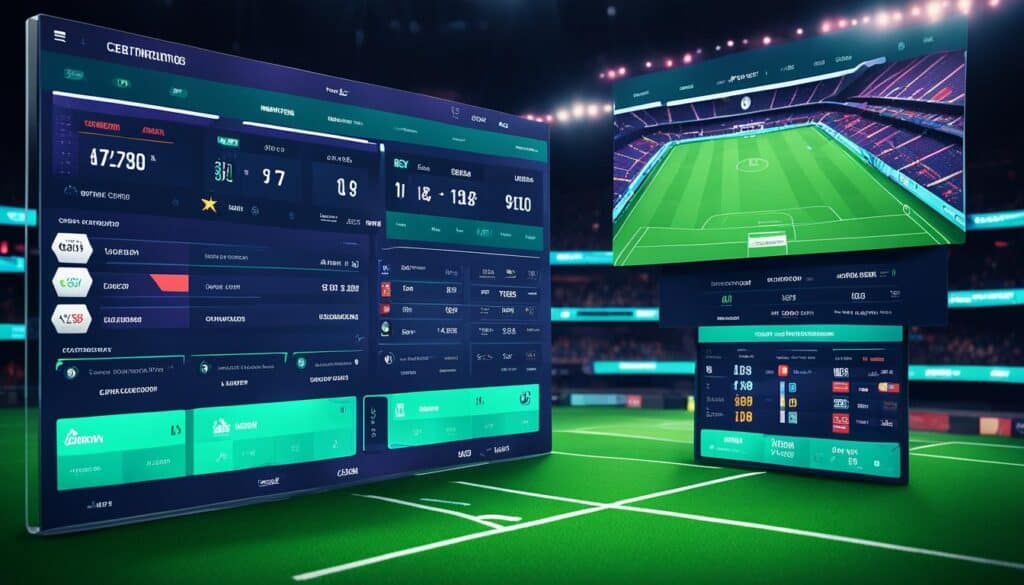
The landscape of online gaming is continually evolving with the future of social gambling and real money betting advancements at the forefront of the digital age. Social gaming innovations are rapidly responding to user demands for more engaging and interactive experiences. Here, we will delve into the progressive development of these sectors and the technological transformation set to redefine the gambling and betting industry.
Innovations in the Social Gaming Industry
The social gaming sector thrives on crafting experiences that resonate with a connected generation of players. As we look to the future, several ground-breaking developments are on the horizon:
- Enhanced interactive features that foster greater social connections and community engagement among players.
- Advanced gamification techniques that incorporate mission-based progress, leaderboards, and more to retain user interest.
- Incorporation of Augmented Reality (AR) to blend the virtual and real worlds, creating a more immersive gaming environment.
Emerging Technologies in Real Money Betting
As for real money betting, emerging technologies stand to modernize the landscape of online gambling:
- Integration of Virtual Reality (VR), offering players a lifelike casino experience from the comfort of their homes.
- Utilizing blockchain technology as a means of ensuring transparency and security in betting transactions.
- Development of advanced mobile betting platforms to provide seamless, on-the-go betting experiences with a focus on user interface (UI) and user experience (UX) design advancements.
These emerging technologies in online betting are not just transforming how we gamble but also improving security, game integrity, and player trust. As we move forward, the boundary between traditional and digital betting realms will continue to diminish, providing players with revolutionary ways to engage in the thrill of gambling and social gaming.
Practical Tips: How to Choose a Social Betting Platform
When venturing into the world of social betting, selecting the right platform is a critical step that should not be overlooked. The decision can greatly impact your experience; thus, it becomes essential to navigate through the various options with a discerning eye. A prime consideration is how well these platforms align with two fundamental criteria: the robustness of their security measures and the fairness they offer in gameplay – these are pillars upon which a trustworthy social betting site is built.
Evaluating Platform Security and Fairness
Security is the bedrock of any reputable betting platform. In the realm of social betting, ensuring that personal data is shielded from unauthorized access should be a given. Before choosing a social betting platform, scrutinize the licensing credentials to guarantee that the site complies with industry standards. The usage of random number generators (RNGs) to maintain the integrity of games is another cornerstone of fairness in gambling. These technical details, coupled with transparent terms and conditions, offer a clear window into the platform’s modus operandi, allowing users to engage with confidence in the security and equitable treatment they’ll receive.
Assessing Bonuses and Player Rewards Programs
Bonuses and player rewards programs are arguably the most direct way social betting platforms show appreciation to their users, serving as a magnet for new players while rewarding the loyalty of returning ones. When weighing the options, consider the immediate appeal of sign-up bonuses and the long-term benefits of a well-structured rewards program. These incentives can transform your social gaming journey, offering strategic value that extends beyond mere play. Judge the perks not just by their face value but also by their contribution to enhancing your engagement on the platform, ensuring a richer, more connected social gaming experience.
 Online Gaming Circuit
Online Gaming Circuit



